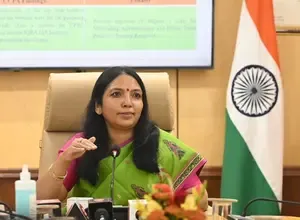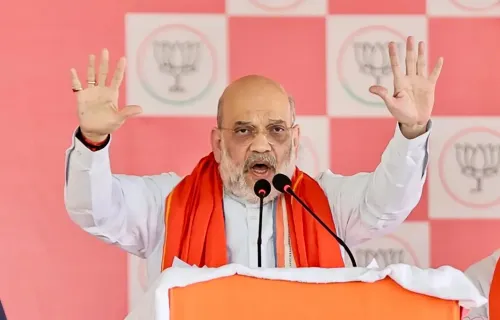Did CCPA Take Action Against 5 Delhi Restaurants for Service Charge Refunds?

Synopsis
Key Takeaways
- CCPA's proactive measures aim to protect consumer rights.
- Restaurants cannot enforce service charges without consent.
- Transparency in billing is essential for fair consumer practices.
- Complaints can be reported via the National Consumer Helpline.
- Awareness of consumer rights can lead to better dining experiences.
New Delhi, April 29 (NationPress) – The Central Consumer Protection Authority (CCPA) has initiated suo moto proceedings against five eateries—Makhna Deli, Xero Courtyard, Castle Barbeque, Chaayos, and Fiesta by Barbeque Nation—for their failure to refund obligatory service charges, despite a ruling from the Delhi High Court.
The authority issued official notices to these establishments located in the national capital under the Consumer Protection Act, 2019, instructing them to return the service charge amounts.
According to the Ministry of Consumer Affairs, “This action aims to alleviate the undue burden on consumers to pay extra fees when accessing services at any restaurant, as no hotel or restaurant is permitted to compel a consumer to pay service charges or any other fee under a different name.”
In 2022, the CCPA established guidelines to combat unfair trade practices and safeguard consumer rights concerning service charges in hospitality venues.
These regulations specify that hotels or restaurants cannot automatically or by default add a service charge to the food invoice.
Moreover, they clarify that service charges cannot be enforced under any other designation, and consumers must be informed that such charges are voluntary, optional, and at their discretion.
Consumers will not face restrictions on entry or service based on the payment of service charges, and these charges should not be included in the food bill along with GST, as per the guidelines.
On March 28, 2025, the Delhi High Court reaffirmed the CCPA's service charge guidelines. Following this, the CCPA received complaints via the National Consumer Helpline (1915), revealing that some restaurants continued to impose mandatory service charges without prior consumer consent, violating consumer rights and engaging in unfair practices under the Consumer Protection Act, 2019.









